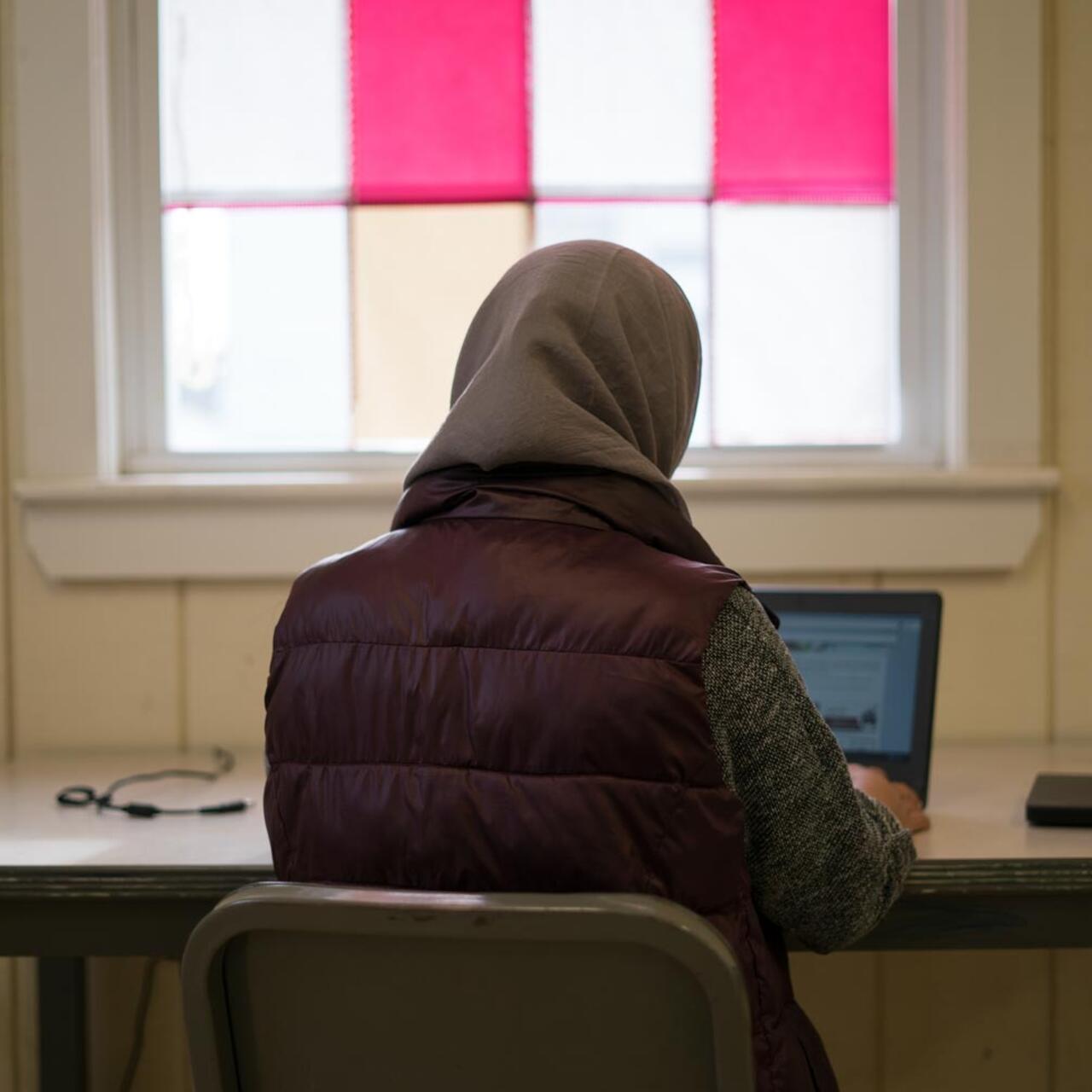
A young Afghan computer programmer builds her new life
Sania, a young Afghan refugee, rebuilds her life and career as a computer programmer in the United States with support from the International Rescue Committee.

Sania, a young Afghan refugee, rebuilds her life and career as a computer programmer in the United States with support from the International Rescue Committee.
When Sania, 25, fled Afghanistan in August 2021, she had a bachelor’s degree in computer science and a dream of creating websites that bring people together. With support from the International Rescue Committee (IRC), she was able to restart her life in the United States, where she hopes to rebuild her career as a computer programmer.
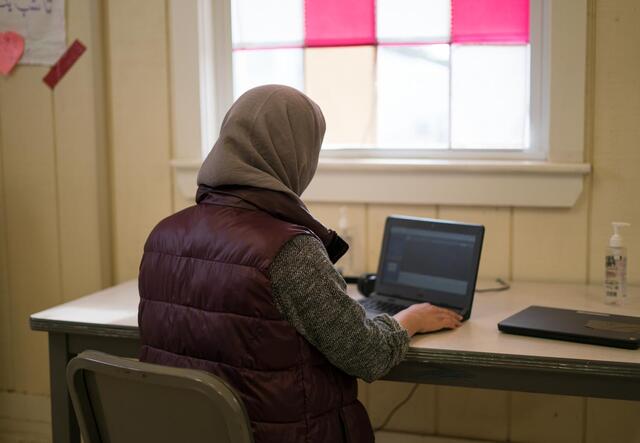
The U.S. has welcomed over 74,000 Afghan refugees since the shift in power in August 2021. Many of these refugees were forced to flee the only homes they had ever known.
The IRC has been supporting Afghans like Sania across the country, welcoming them to U.S. government-run “Safe Havens” where they receive temporary accommodations, food and medical care. When they leave the Safe Havens, the IRC helps many of them find housing, employment, health care and other essentials.
Here is Sania’s story.
I was in 11th grade when one of my classmates told me about a course on Microsoft Excel and PowerPoint in the Ministry of Women’s Affairs. Most of us did not have access to computers at that time, but we were determined to take the course.
After graduating high school, I decided to continue my study in this field because I had grown very fond of it. I was interested in making websites that others could learn from and use freely.
For the first two years, I was in a government college and afterward I studied in a private university for two years. My male classmates in Afghanistan confronted me numerous times, saying that computer science was a profession not meant for females, and that I needed to opt for a profession “designed” for women. I was bullied and discriminated against. They were not ready to count me in their group.
With all of that hardship, I did not yield. I did not lose my hope and I wanted to go ahead. I later transferred to a private university, where half the students were female.
I did not yield. I did not lose my hope and I wanted to go ahead.
There are various obstacles against female education in Afghanistan, including lack of family and community support, schools that are far away, and a lack of female teachers. Personally, I did have my family’s support but I did not have the support of the general society.
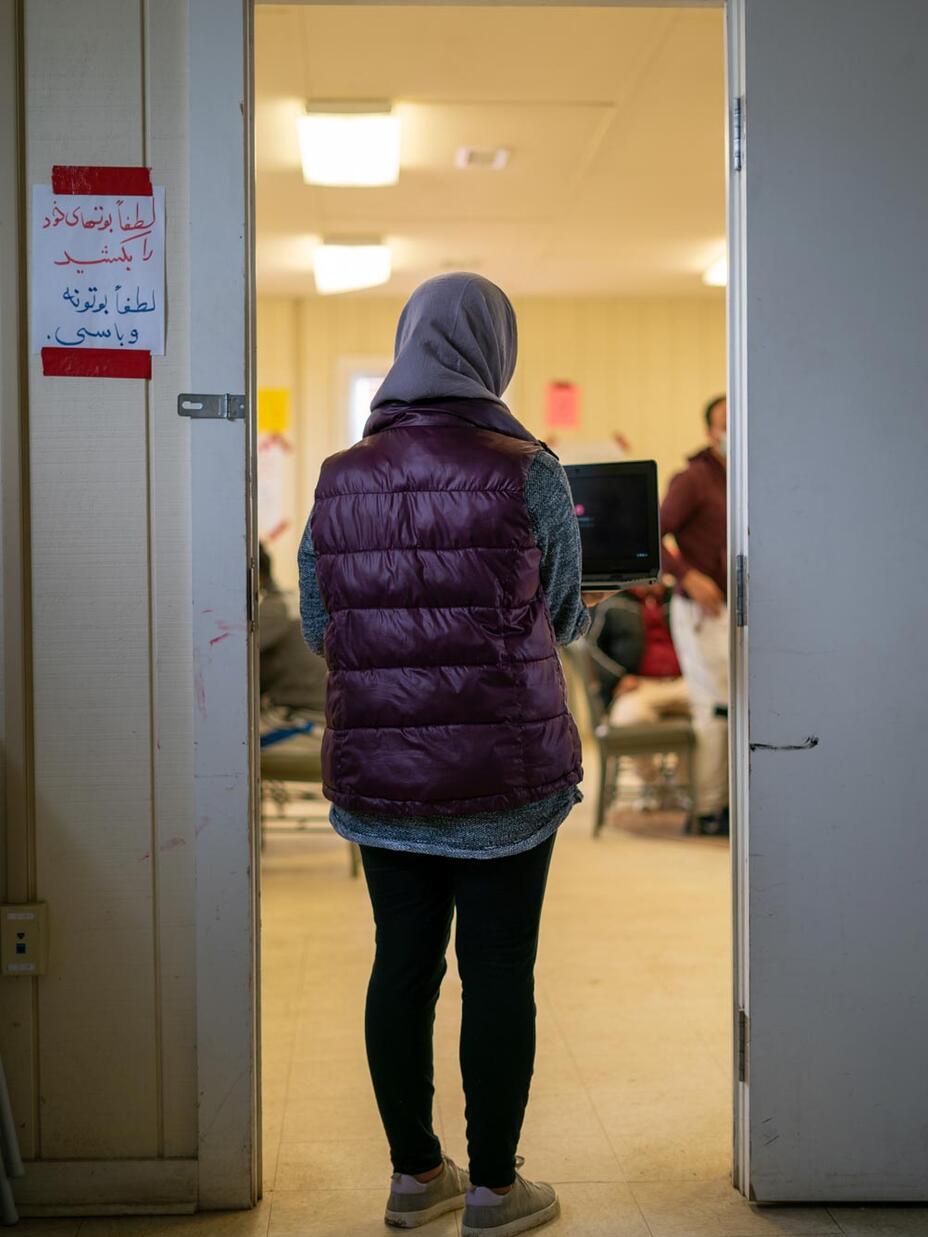
In August 2021, suddenly the situation turned very chaotic. Everyone panicked and was scared for their lives.
In the final days when I was leaving, everything was dire and people were extremely anxious because they were trying to leave. I was also anxious that the situation might get even worse. No one knew what was going to happen to them.
When I arrived at the airport, I couldn’t believe so many people had already come. I thought I might not be able to enter the airport, but after a lot of struggles I was able to get on a flight.
My brother and I were able to leave but our mother, who has arthritis, was not able to make it to the airport in time. She now lives in Kabul all alone, with no one to help with her medical needs.
We came to the U.S. on September 6. My goal was to come here and just have a life. I think 80% of girls who are in Kabul want the same. They want freedom, freedom of thinking, freedom of education. Their wish is to reach what they are dreaming about.
The IRC has always, from my point of view, helped everyone. When I first came here I was treated very well and all the questions I had were answered. For instance, they introduced us to multiple organizations that helped us with basic necessities. They also helped us to relocate close to family members. I wish the IRC even more success in helping Afghans. I really thank them because what they do is a big deal for us.
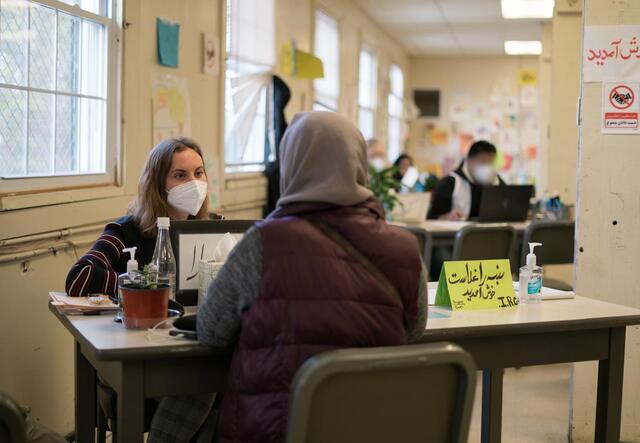
Once I arrived here, I thought, ‘I got all I wanted and now I can overcome any problems.’ It was a strange feeling to know I can achieve whatever I have planned for.
I want to be a person who can help others. I really like working in networking and IT. I want to find ways to help those who don't understand or don't have access to technology.
I also want to make a website like Google, Facebook and Instagram because these apps bring everyone together. Computer science helps introduce people to the world and show them what is happening.
I want to make a website like Google, Facebook and Instagram because these apps bring everyone together.
I am very determined to reach my goals. I want to establish myself in the United States and hopefully sponsor my mother to come here.
It was always my wish that peace be established in my country and girls like me could reach all their wishes and dreams. I don't want my country and its people to go backwards.
There are thousands of girls in Kabul like me who wish to study, continue their education, work in the field they choose, be active in society, and help their fellow Afghans.
My personal dream is to help the people of Afghanistan so they can have better lives. If I one day meet a girl who is in Kabul and she has a lot of interest in computer science, I will tell her to never lose hope and to not give up on her dreams. There will be a day when things will be OK and she will continue her education.
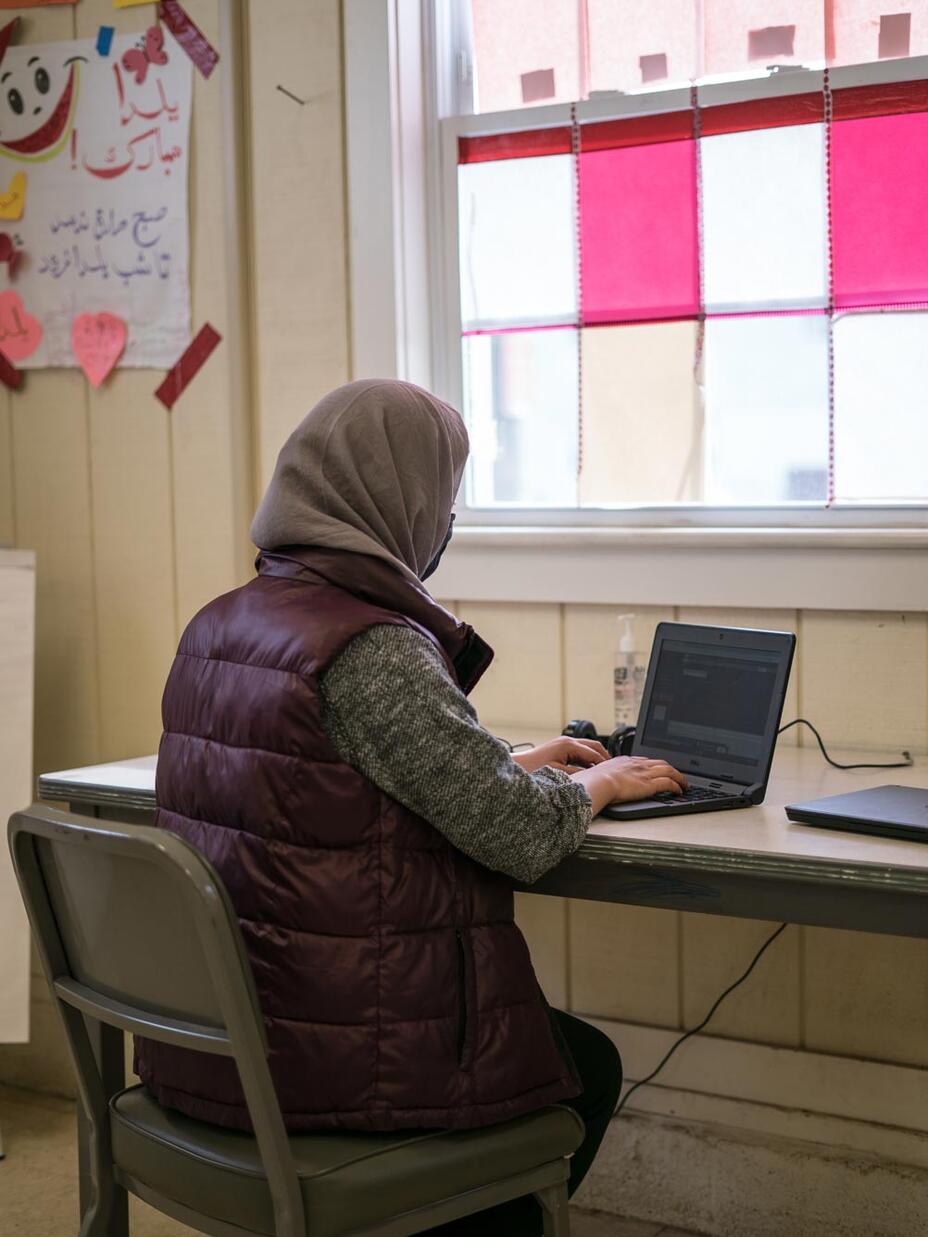
My message to the people of the U.S. is to support the Afghans who have come here, because they were in really bad shape when they left their country. Everything is new for them since they have come to a very different place. And I thank Americans for helping us so far.
The IRC works in 25 cities across the country to welcome Afghans, Ukrainians and other refugees as they rebuild their lives in the U.S. Here’s how you can support:
Donate by signing up for a monthly gift that will be used where it is needed most.
Learn how you can support a local IRC office near you.
Volunteer in a local office or remotely. Opportunities include preparing new homes for refugee families, mentoring someone as they restart their career and tutoring students.
Sponsor an Afghan family. Established organizations, such as businesses, university communities, faith groups, sports teams or local clubs can become Afghan Placement and Assistance (APA) Community Partners to help families get on their feet.
Rent to a refugee. If you are a landlord, find out how you can rent to a refugee.